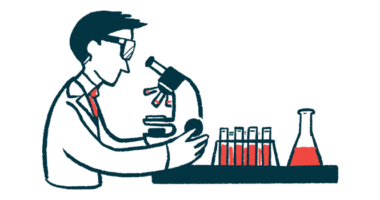Vasodilators and Aspirin May Protect Hearts of Systemic Scleroderma Patients, Study Suggests

Use of vasodilators — medications that trigger the widening and relaxing of blood vessels — may help to prevent heart problems in people with systemic scleroderma, a study suggests.
Low-dose aspirin was also found to offer some protection against some forms of cardiac disease, its researchers said, recommending more study into both potential treatments.
The study, “Vasodilators and low-dose acetylsalicylic acid are associated with a lower incidence of distinct primary myocardial disease manifestations in systemic sclerosis: results of the DeSScipher inception cohort study,” was published in the Annals of the Rheumatic Diseases.
Scleroderma is a chronic autoimmune disorder of the connective tissue — tissue that holds together other tissues and supports organs — characterized by scarring (fibrosis) of the skin and internal organs. In systemic scleroderma, also known as systemic sclerosis (SSc), the degree of scarring in organs is quite profound.
SSc patients often develop heart disease at some point in their lives. It is typically considered primary when patients show no signs of lung or kidney involvement, and secondary when they do.
“Short-term studies have underlined a beneficial effect of calcium channel blockers and other vasodilators including ACE inhibitors on cardiac vascularization and function in systemic sclerosis,” the researchers wrote. “However, the role of vasodilative agents in the prevention of primary myocardial [heart muscle] disease has not yet been defined,” they added.
Investigators reported on findings of the European DeSScipher project, with a focus on the impact of vasodilators on the incidence of complications arising from primary heart disease in SSc patients, especially those with a poor prognosis.
The study enrolled 601 SSc patients (mean age, 56) recruited at 20 different DeSScipher-EUSTAR clinical centers between December 2012 and November 2015.
Of these, 448 people had already been treated with vasodilators — such as calcium channel blockers, ACE inhibitors, angiotensin II receptor blockers, endothelin receptor antagonists, PDE5 inhibitors or prostanoids. The remaining 153 had never used any type of vasodilator agent.
During a follow-up of at least six months and up to four years, a series of complications linked to primary heart disease were reported. Among them were 12 cases of heart arrhythmias, 40 heart blocks, five Q waves (indicative of myocardial infarction or a heart attack), six pacemakers surgeries, and 19 left ventricular ejection fraction (LVEF) and/or congestive heart failure cases.
Of note, LVEF measures the amount of blood that the heart’s left ventricle is able to pump out to the body during each contraction; low LVEF values may indicate heart disease or heart failure. Q waves, cardiac blocks, and the use of pacemakers are linked to fibrosis in these patients, the study noted.
Several analyzes showed that vasodilator use was associated with a lower incidence of heart arrhythmias, while the use of low dose acetylsalicylic acid (ASA, commonly known as aspirin) was linked to a lower incidence of heart blocks, Q waves, and/or the need for a pacemaker.
Higher SSc activity at the study’s start was associated with a 3.71-times higher risk of lower LVEF values and/0r congestive heart failure, as well as with a 2.15-times higher risk of heart blocks, Q waves, and/or pacemakers.
“In conclusion, our prospective, observational study suggests a protective role of vasodilators and low-dose ASA on distinct manifestations of SSc myocardial disease and prospects the opportunity to conduct well-designed RCTs [randomized clinical trials] on both therapeutic strategies,” the researchers wrote.






